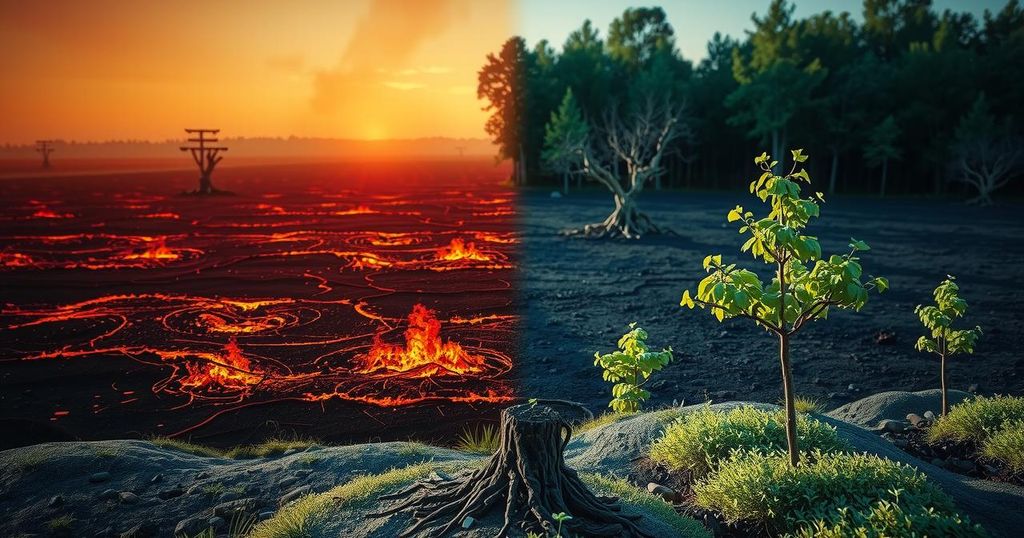Bolivian farmers are confronted with the decision to either continue the practice of slash-and-burn agriculture or adopt tree-planting initiatives to combat drought conditions following severe wildfires. Approximately 10.7 million hectares of forest have been lost, leaving agriculture vulnerable and communities in precarious situations. Local women are exploring innovative reforestation methods to replenish deforested land, highlighting the urgent need for sustainable farming practices in light of recent environmental challenges.
In the wake of Bolivia’s most severe wildfires, farmers are at a crossroads: they can either continue to utilize slash-and-burn techniques to clear land for farming or opt to plant trees to counteract increasing drought conditions. According to the Bolivian Institute for Forest Research (IBIF), approximately 10.7 million hectares of tropical forest were destroyed last year, a loss comparable to the size of Portugal. Despite less media coverage than the blazes in Brazil, these fires resulted in fatalities and significant carbon emissions.
The use of controlled burns has been blamed for the extensive fires, which became uncontrollable due to a persistent drought linked to climate change. Julia Ortiz, a local sesame farmer, recalls a perilous night spent attempting to extinguish a fire she had started for land preparation. “It can happen to anybody. Most of us live off farming and we must do burns,” she indicated while tending to her crops.
Carmen Pena, a local resident, expressed her concerns after losing her banana and yuca crops due to the fires, stating, “I don’t know how we will survive because our food is running out.” Many other villagers are similarly reliant on agriculture for their livelihoods, highlighting the precariousness of their situation.
Despite the devastation, some farmers continue to ignite new fires to clear land for crops. While Ortiz’s community is launching a tree-planting initiative, the presence of charred tree trunks on her land underscores ongoing deforestation. An IBIF report revealed that over 63% of damaged land from last year’s fires was forested, suggesting a growing trend of farmland expansion.
David Cruz, a climate change expert, criticized governmental policies that seemingly support deforestation by pardoning fire starters and allowing further land burns. Ortiz argues that without mechanization, such as tractors to remove trees, farmers have limited options. “If we had tractors, we would not need to do burns,” she emphasized, acknowledging the risk of uncontrolled fires.
Faced with water shortages that are further damaging crops, local women are employing a novel tree-replanting technique from Nepal. They create “bombitas,” small soil balls filled with seeds, which are distributed via drones across deforested areas. With support from NGOs, they aim to rejuvenate approximately 500 hectares of land, commencing in March.
Joaquin Sorioco, a farmer and forestry technician, expressed hope that reforestation efforts would enhance soil moisture retention. The Flades Foundation, which is supporting these initiatives, asserts that the wildfires provided a crucial lesson regarding the harm of land-clearing practices. Mario Rivera, director of the foundation, remarked, “We went through very difficult times, but it helped create awareness.”
Bolivian farmers are currently navigating a critical dilemma as they confront the aftermath of devastating wildfires. With significant forest loss and agriculture at risk due to drought, the choice between clearing land with fire or adopting reforestation initiatives is paramount. Local efforts to implement tree planting signify a push towards sustainable practices, although challenges remain with mechanization and governmental policies. This situation underscores the pressing need for awareness and action regarding environmental conservation and the protection of livelihoods.
Original Source: www.france24.com




